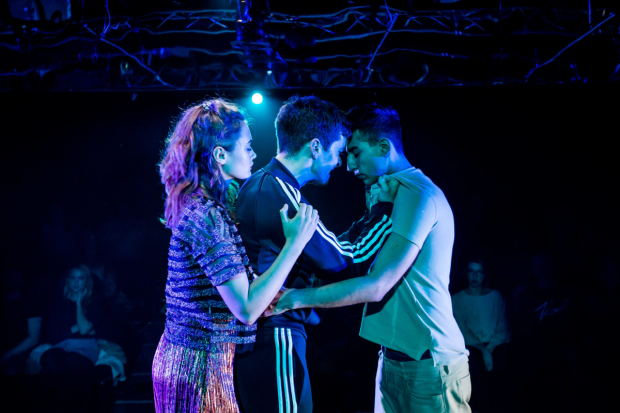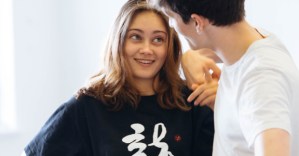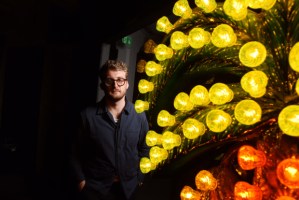Review: Natives (Southwark Playhouse)
Glenn Waldron’s play looks at how digital and real worlds collide for young people today

© Richard Davenport
Teenage brains aren’t finished. They’re still under construction, still making sense of the world around them forging synaptic connections between sensory information. Glenn Waldron's three-hander argues that, since today's teenagers live in two worlds at once – one digital, one real – they're liable to confuse the two and, worse, to hardwire that confusion into their heads, maybe even into the world itself.
Produced by Boundless Theatre, a company that focuses on issues affecting young adults, Natives cuts between three separate stories, all variations on the same theme. Three teenagers, all just turning 14, struggle to separate their digital lives from real life itself. It’s a disturbing phenomenon – all the more disturbing because Waldron, a former editor of i-D magazine, suggests there may be no distinction to make. To digital natives, the world is all one.
None of them, incidentally, are square-eyed obsessives. These aren’t screen junkies lost to the world. They’re not skipping meals to maximise screen time, nor are they retreating into virtual reality. They’re ordinary kids with ordinary gadgets. One’s a gamer, one watches a bit of porn, one uploads her life onto social media.
These realms aren't distinct, but extensions of life. Gamers switch screens to flick from one way to another, and first-person shooters can feel as real (or as unreal) as gay teenagers thrown from Syrian rooftops. Fionn Whitehead's awkward adolescent retreats into porn after his brother's death, trading brittle, uncomfortable bodies for perfect, unbreakable ones. Social media, meanwhile, merely replicates real-world relationships, even as it reduces them until Ella Purnell's impressionable teen sees the world by numbers and judges everything by likes. Her insecurities go viral – online and off.
Each story is over-extended, not least because they are all, at base, the same story and arguably, so familiar as to be modern fables: porn users who use people, over-sharers that make spectacles of themselves. In tying them together, Waldron teases out something new – and what an alarming thing that is.
To watch Natives is to feel something’s tipped. It is to fear that our actions, as adults, our inventions have untold consequences on our kids. Or rather, have had untold consequences. They've reshaped the world in ways we don’t fully understand and can’t fully control. The genie is out of the bottle, through the looking glass and climbing all over the walls. Oh, and he’s eating the young in the process.
Only, Waldron’s wise to the fact that something’s always eating the young. Natives has its ancestors: Enda Walsh‘s Chatroom and Lucy Prebble‘s Sugar Syndrome for example. Technology's forever reshaping the world. It's never not alarming.
Rob Drummer’s staging seems to reshape itself too on Amelia Jane Harkin's white strip of stage – a virtual space made real. Or is it vice versa? Zoe Spurr’s lighting throws it into eight-bit colour. Cate Blanchard’s projections dance on the floor. A mossy rock sticks out of it like the last remnant of the real world. Manish Gandhi has a questing presence, hunting down answers as he does baddies, and Whitehead makes clear the difficulties of real bodies and the attraction of digital ones. Best of all is Purnell, outwardly carefree but cracked inside. She seems to have swallowed the virtual world whole. Haven't we all? Or has it, as Natives implies, swallowed us?
Natives runs at Southwark Playhouse until 22 April.














